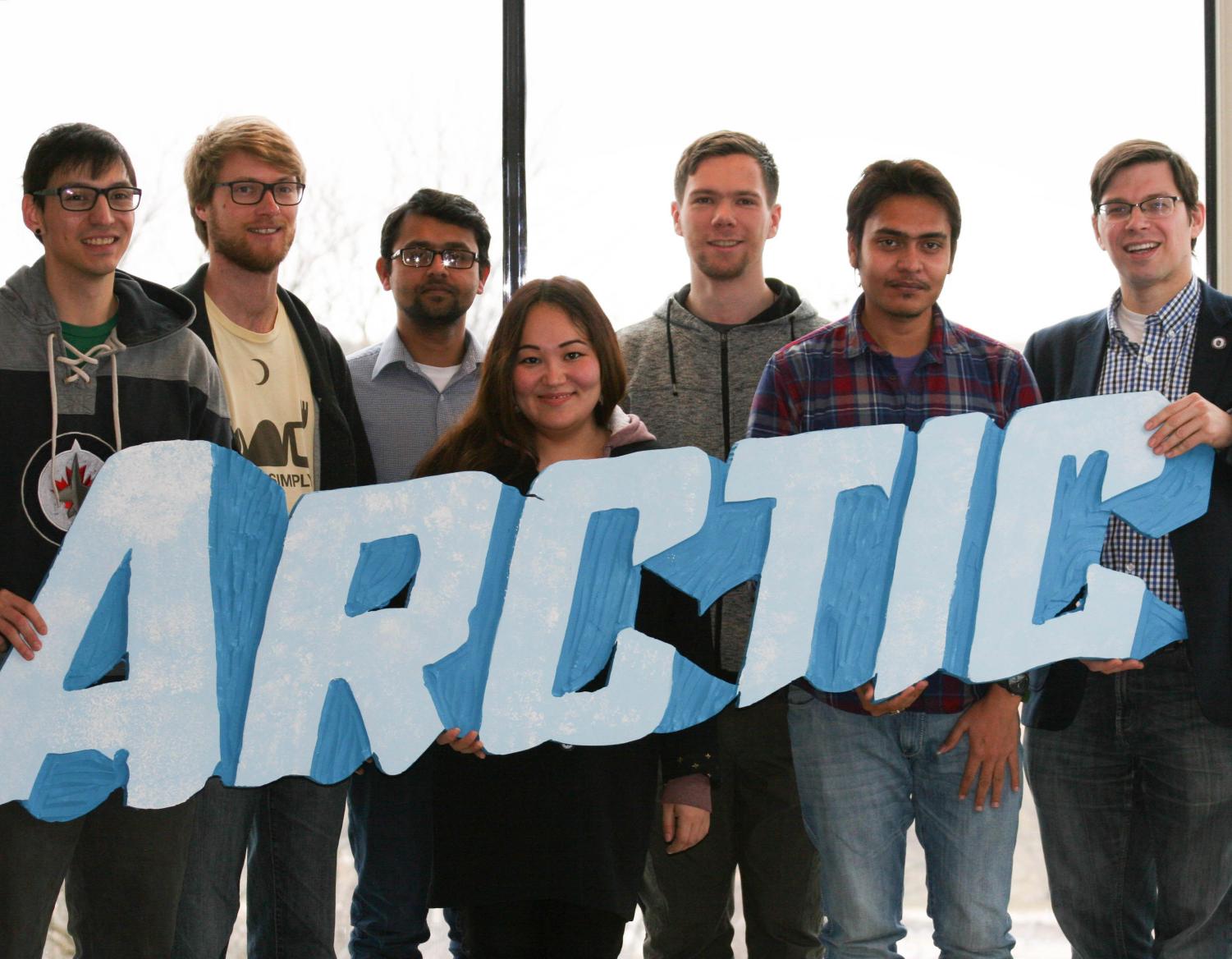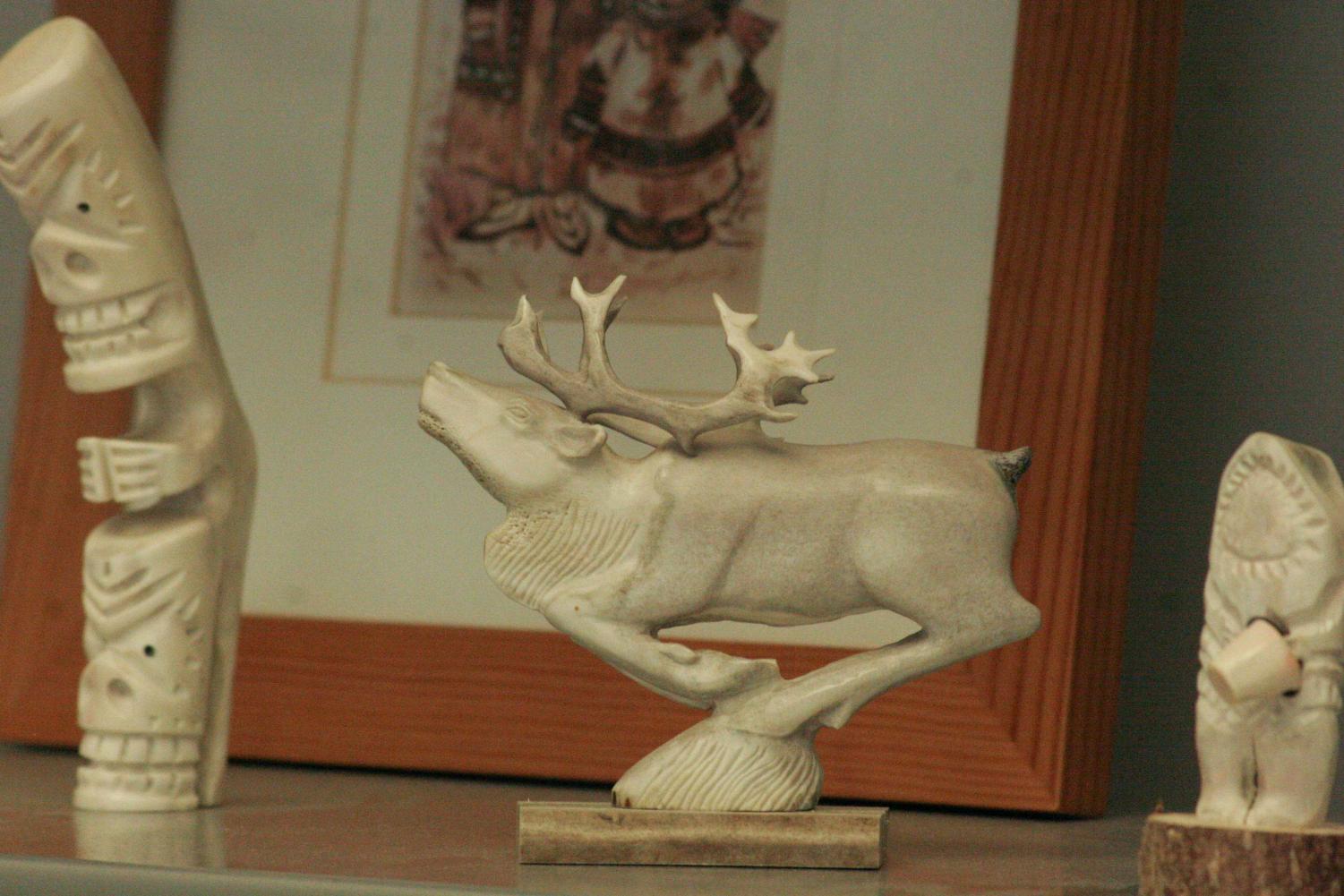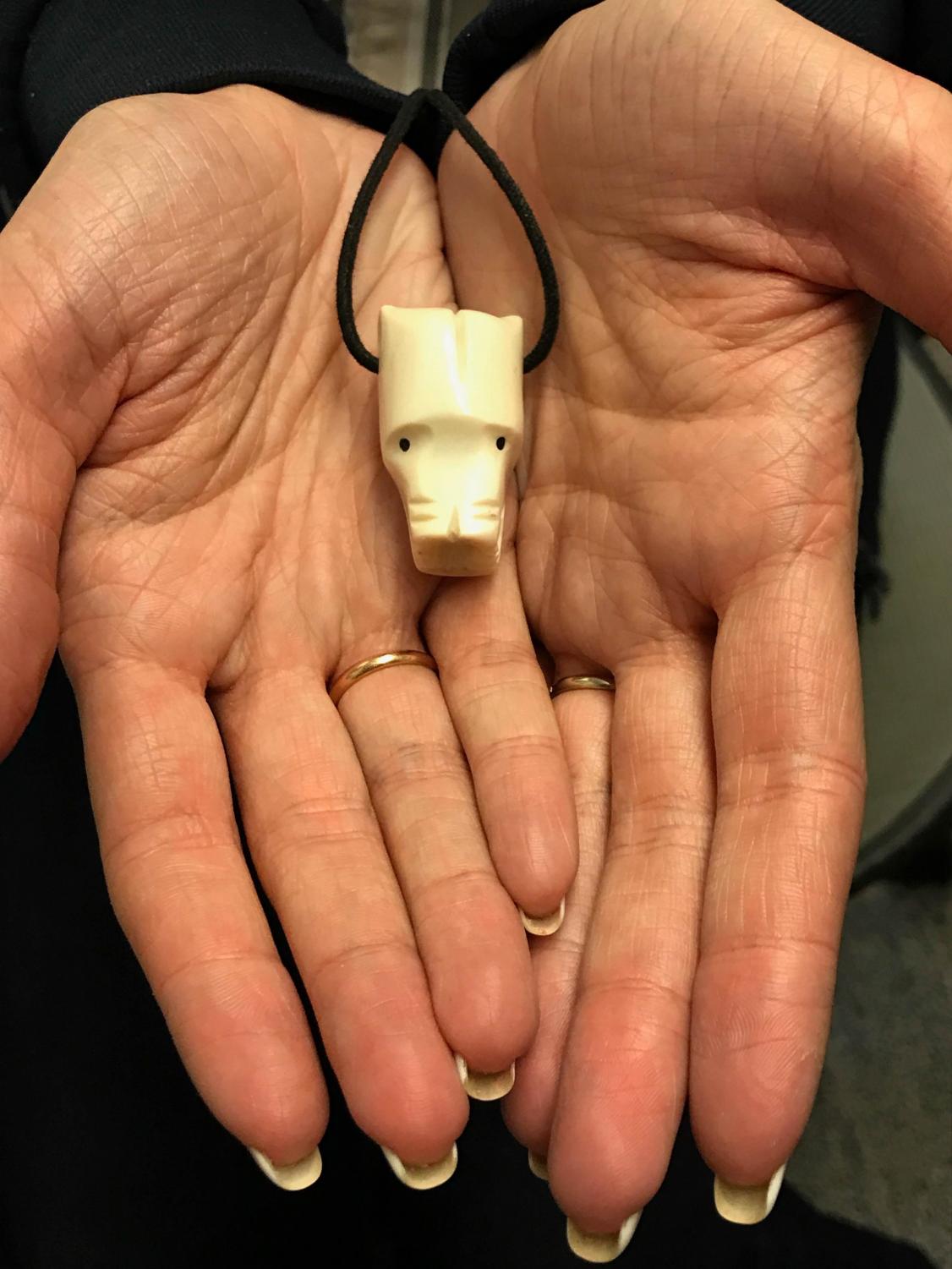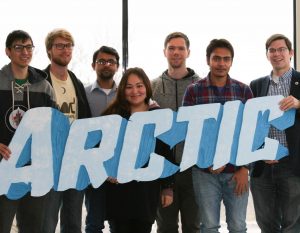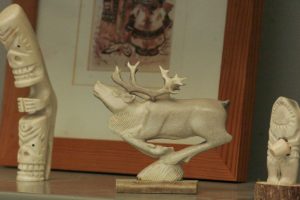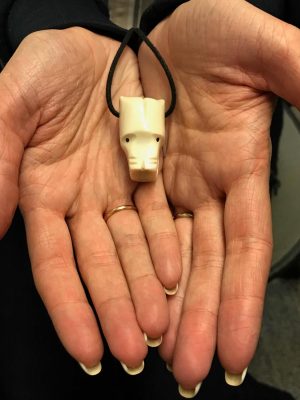UNI ARCTICenter leads the pack
Jan 29, 2018
Cedar Falls may be colder than the rest of Iowa, but it’s not as cold as the arctic. Still, that hasn’t stopped Andrey Petrov from leading UNI to the front of the pack for arctic research. Petrov is an associate professor of geography and director of the Arctic, Remote, and Cold Territories Interdisciplinary Center (ARCTICenter) at UNI.
Funded by the National Science Foundation, the center performs research across several disciplines, all relating back to the arctic. The center is part of a larger consortium, the International Arctic Social Sciences Association (IASSA). It was chosen to be the secretariat from 2017-2020.
According to Petrov, the center has performed research regarding economic development, sustainable development, cultural economies, arctic youth and more. Petrov’s expansive experience and exceptional mentorship makes the center unique said one of his mentees, Siobhan McTiernan, a geography graduate student.
“This program allows students an opportunity to work with a globally renowned expert in circumpolar regions and conduct research in a unique field,” McTiernan said. “Petrov makes students feel capable in achieving research goals and objectives by being accessible and involved in the research. He has connections throughout the world, and he has traveled to many of the areas of study to have a firsthand perspective of what is happening within the arctic.”
McTiernan spent the summer in a research internship with Petrov.
“The internship was a project which used remotely sensed data to use tools — such as geographic information systems and hyperspectral imaging — to create a fire index specific to understanding the spreading of fires in the tundra,” McTiernan said. “This fire risk index can be vital in protecting people by allowing them to see at risk areas and prevent and understand the impact of large scale fires within the tundra.”
The first project they did looked at creative capital and production in arctic regions, and several spinoffs of this research were performed elsewhere. They have also written papers on the shrinking of the largest wild reindeer herd in the world, including its link with tree line shrinkage. Finally, Arctic Horizons is a project to develop priorities for arctic social science research for the next decade. They are compiling what knowledge is missing, with the intent of fulfilling it.
According to Petrov, the ARCTICenter’s work is largely related to the people in the region.
“The Arctic Center studies sustainable development in the arctic, meaning development that improves well-being, health and security of arctic communities while preserving ecosystems’ structures. We need to make sure the sustainable development improves people’s lives, and — of course — strives to preserve resources.”
One way the center and the international community does this is through what Petrov calls “knowledge sharing workshops,” in which they travel to communities to help them understand what their research has found. These workshops have occurred in Quebec, Alaska, Greenland and Russia.
Graduate students are an integral part of the ARCTICenter. Varvara Korkina, a geography graduate student, feels the work she has performed is a major accomplishment in her life.
“We look at the opportunity for sustainable development of indigenous culture and how indigenous artists can make money through the cultural economy,” Korkina said. “How can they run their own business based on cultural heritage?”
This research on how communities can get their fair share of revenues and further develop their economic base is new in the field.
“Some indigenous [people] are losing their livelihood — like reindeer herders — because of climate change, for example. Land is shrinking because of destructive industries, disease, climate change and more. [I am figuring out] what these people should do,” Korkina explained. “The arctic is a special territory. Development in the arctic is slow while changes are rapid, so the region cannot adapt. For communities, these issues are new.”
Atiqur Rahman, geography graduate student, utilizes geographic information systems (GIS) and remote sensing in his research.
“I research ecosystem disturbances in Northwest Russia,” Rahman said.
These include human interaction with the environment, like fishing and hunting. He analyzes the impact on vegetation in the region and uses geo-sensing to see the full damage that has occurred.
Chris Pierce, a geography graduate student, edits the IASSA newsletter. He found the center to be an excellent outlet to opportunities, even though his thesis doesn’t concern the arctic.
“Scholars from all over the world came to UNI in the fall,” Pierce said. “There’s a lot of networking you’re able to do with other scholars and professionals, talking about issues and urban sustainability. I was able to get a different cultural perspective and bounce ideas off people.”
“The arctic is a place that inspires curiosity and is one of the most rapidly changing places on Earth, and the fact that I could work with Dr. Petov in the ARCTICenter was the main reason I chose UNI,” McTiernan said. “To learn, work and contribute to something much bigger than myself.”


